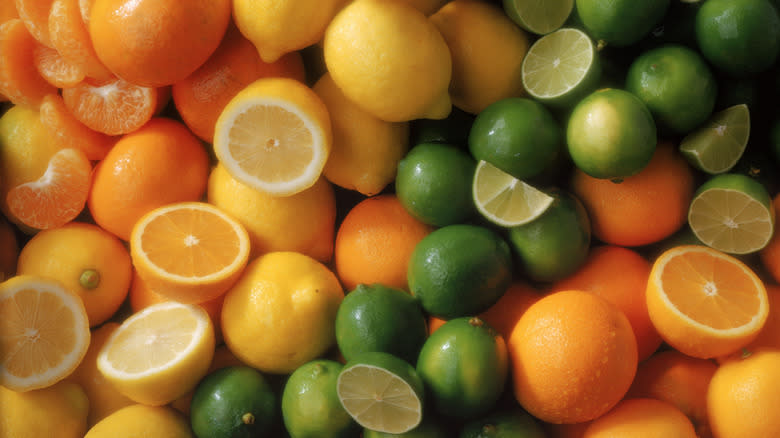Why Daniel Boulud Adds Citrus To Improve (Almost) Every Dish

- Oops!Something went wrong.Please try again later.
When an alumnus of Gordon Ramsay describes a chef as the best in the world, as Dale MacKay did for Daniel Boulud, you'll want to incorporate that chef's tips into your own cooking. Attending a dinner with the French chef, Reader's Digest uncovered that one of Boulud's key techniques for nearly every dish is to add contrast through citrus.
While Boulud has yet to specifically outline his personal reasons for using citrus so often, he has always made his position as a student of French cuisine clear. He grew up on a farm in Lyon, the gastronomic capital of France, where everything he ate was produced on-premises. In his book "Daniel: My French Cuisine," Boulud describes himself as, fundamentally, a "French chef." With its emphasis on freshness and flavor, it comes as no surprise that the French school of cuisine has been incorporating citrus for centuries.
Citrus sees considerable mention in what is regarded as the first French cookbook, "Le Vrai Cuisiner Francois." In it, we see both the juice and zest of citrus fruits used for biscuits, breads, sauces, and salads, just like how we still use these elements today. (It should be noted: Incorporating citrus into food is by no means specific to Boulud, to France, or to modern-day cuisine, with citrus recipes appearing in literature of the Abbasid Caliphate between the 8th and 9th centuries B.C., using the ingredient as a flavoring for sausages, fish, and meaty stews.)
Read more: Famous Chefs Who Are Jerks In Real Life
Deciding Which Citrus Fruit To Use When Cooking

One of the main reasons citrus is such a no-brainer when cooking is variety. Keeping the flavor profile of your citrus fruit in mind when cooking is vital to getting the right kind of zest for your dish.
Lemons and limes, with their sour kick, work beautifully when used to contrast food that has a very gentle flavor. This is why you'll commonly see them squeezed over white fish, mixed into a salad, or added to a cheesecake.
Grapefruits are naturally bitter, so they require a bit more masking. Using sweet syrups can balance out grapefruit, with Daniel Boulud favoring bergamot honey in his recipes. If you successfully combine the sweet and bitter, you can create some interesting desserts with grapefruit, spicing up muffins or adding a tang to your fruit parfait. You could also embrace grapefruit's tanginess by using it in a salad.
Oranges are unique because there are so many different types. Thus, deciding which to use is a whole new kettle of fish. Boulud seems to be a fan of the blood orange, describing the combination of it with other citruses as a "tangy and colorful tide" in his cookbook. Dishes like General Tso's chicken or orange chicken combine the subtle flavor of their protein with the zing of sticky orange sauces. These sauces work with either sour Seville oranges or super sweet Cara Caras, depending on your mood. Regardless of what dish you're preparing, citrus can elevate the flavor.
Read the original article on Mashed.

